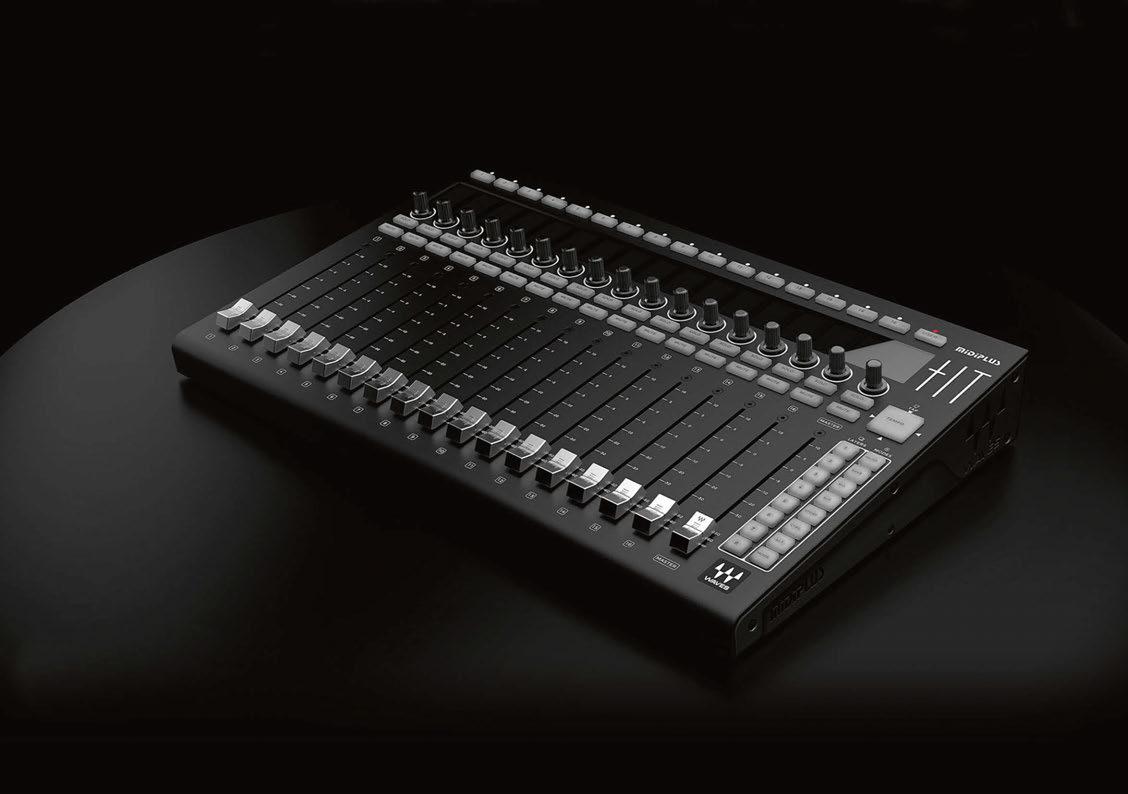
4 minute read
Shure Round Table
Shure gathers six industry experts within the world of live audio to ask the question: What is the future of live sound? TPi sits among the digital audience, listening in to what the panel has to say.
Throwing its hat into the ring with an alternative panel to make up for the lack of trade shows and gatherings in 2020, Shure proudly launched its new Round Table series with a panel of distinguished audio professionals to muse over the future of live audio. The event’s host, Jack Drury, Market Development and Artist Relations at Shure UK, explained that the topic of the conversation had already been decided before the current state of the live events sector. However, due to the unprecedented times, with the future of live events hanging in the balance, the topic of conversation was all the more pertinent.
The panel boasted a range of audio specialists including: Bryony October, FOH Engineer for Katie Melua; Mike Woodhouse, FOH Engineer for Catfish and the Bottlemen and Frank Carter & The Rattlesnakes; Matteo Cifelli, Producer and FOH Engineer for Jess Glynne; Jon Burton, FOH for The Prodigy and Biffy Clyro and Lecturer and at the University of Derby; Freyja Lawson, Monitor Engineer for Mura Masa; and Tuomo Tolonen, Head of Shure’s Director for Western Europe.
To kick things of, Drury posed the question to the panel: “What positives or negative elements are going to remain with the current state of the world?” October kicked things off by expressing her thoughts on how the cut down of international travel, and only having the UK to potentially tour with did not present a financially viable solution for touring. However, Woodhouse was keen to point out the emergence of streaming within the pandemic. “With Frank Cater & The Rattlesnakes, we put on a streamed, pay-per-view event at the Underworld, London,” he stated. “I think this type of event is going to really become the norm and we’re likely to see more of these going forward.” He did admit though this was rather terrifying as, for him as a FOH Engineer, it involved learning a whole new set of skills. “We are essentially becoming broadcast engineers when working on this style of event. With the Frank Carter show, I worked with the album producer to make the performance sound as close to the album as possible.”
Jumping in and speaking for his decades of experience, Burton stated how this ‘multi-hat’ style of engineering was not too dissimilar from some of the tours he had done in the past. “Particularly in America, I remember I used to find myself doing these college radio shows where you’d roll-in and have to give the station a feed of the performance. That setup isn’t far from a streamed performance in terms of the skills you need. I don’t think streaming will ever replace a live show but, as engineers, we need to learn more skills.” It’s something that, as an educator at the University of Derby, he has often tried to instil in his students. “I often say to them that you can’t just be a touring engineer and now, sadly, this is more evident then ever.”
Jumping on the streaming conversation, Shure’s Tuomo Tolonen was keen to remark how the development of touring could open up live music to a whole new audience. “It will never replace a live show, but you just have too look at shows like BTS’s performance, which was a paid-for event and had 750,000 viewers. The younger generation is far more comfortable watching content through their laptops and phones and it’s undeniable the uptake this form of entertainment has had.”
Cifelli also hypothesised that this demand could, in the future, lead to more departments within the touring party. “I think we’ll see new departments in a tour emerge to handle the streaming feeds. Probably not in the near future, but certainly in a few years.”
Away from the hypotheticals of show formats, Drury turned the panel’s focus on the real-world implications of crew wages and the worry that the pandemic could lead to technicians being undercut as shows start to return. “I think now, more than ever, it’s important for us as an industry to have some transparency in wages,” stated Burton. “The film industry, for example, has rate cards as well as unions. I know over the year I’ve certainly been played off with other engineers and I think having a clear indication of wages would be increasingly helpful.”
To close, Drury asked the panel to give their thoughts on what the first shows returning after lockdown may look like. “I think what has become clear, is that we can’t return until this whole situation is brought under control,” stated Lawson. “However, I do hope that some of the hygiene practices are carried over from this pandemic – especially when it comes to body packs and microphones.”
The full round table is still available to watch via the Shure Performance and Production YouTube channel, along with the second round table posing the same question to a collection of experts from the theatre world. TPi Photo: Shure www.shure.com www.youtube.com/c/ShurePerformanceProduction/videos










